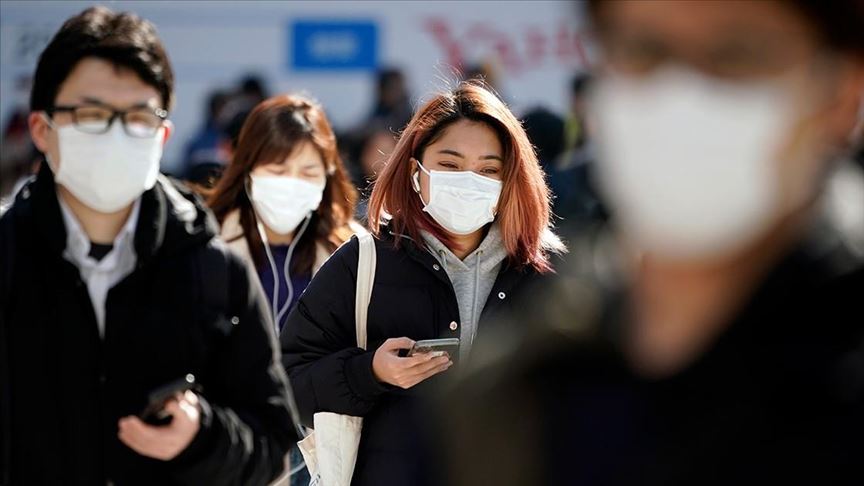
ANKARA
Since it was first detected in China on Dec. 12, the novel coronavirus has been rapidly spreading, threatening daily life in one of the world’s most densely populated countries.
The new type of coronavirus, whose scientific name is 2019-nCoV, was first detected in Wuhan city in central China's Hubei province and quickly spread to other cities in the country.
According to the country’s National Health Commission, at least 1,011 people have died due to the novel coronavirus outbreak since then.
The commission also said there are more than 40,000 confirmed cases and nearly 200,000 people under medical observation.
Despite the Chinese government's official statements, public opinion around the world suggests these numbers might be much higher and Chinese authorities might be hiding the truth.
According to some claims, on the first day of February, the coronavirus tracking system on the official website of Tencent Holdings, one of China's largest technology and software companies, showed the death toll at 24,589.
The number of those infected was at least 154,023, according to the website.
But the company removed the numbers shortly after, claiming they were wrong.
Although the number of people who died or got sick due to the virus is controversial, the fact is that the virus has severely affected daily life in China.
Anadolu Agency interviewed people living in various cities in China who talked about their most common problems because of the virus.
The interviewees, speaking on condition of anonymity due to security concerns, said they do not go out unless it is necessary, avoid going to crowded places, including school and work, and stock food and hygiene products.
Moreover, they said millions of people in many parts of the country have been deprived of public transportation due to the government's decisions.
A 25-year-old employee at an education company in the capital Beijing said that unfortunately, people are unable to return to their work routine, leading to income losses for people and companies.
"Some products are not available on the market due to stockpiling. Therefore, the prices of the products rapidly increase every day," the expert said.

Also, a 29-year-old financial advisor who lives in Beijing said people's daily lives and habits have changed.
"Constantly washing one’s hands has become a kind of obsession for people. Moreover, protective face masks have become a part of daily life. People do not go out without a mask," the advisor said.
The advisor added that while some companies prohibit their workers from using public transport, most white-collar workers prefer to work at home.
An executive assistant who lives in the city of Shenzhen in southeastern China said people buy air purifying devices for their homes and avoid crowded places.
A 21-year-old computer engineering student who lives in Shenzhen said although there are some problems in his city, people suffer more in Wuhan due to the conditions caused by the virus.
Another student, 25, who is continuing his university education in the city of Changde in Hunan province, said people stay away from each other, including their relatives and friends, to avoid getting sick.
"People do not even organize parties and do not go to family meetings," the student said.
The student also drew attention to the symptoms of the virus, saying it could trigger heart problems.
"People who suffer due to the virus have ordinary symptoms of flu such as fever, fatigue, and cough. But additionally, some heart problems have also been observed so far," he said.
Due to the coronavirus outbreak, a large number of international airlines have suspended flights to China.
The Chinese government has also suspended public transport in 17 cities with a total population of 50 million.
The virus has spread to more than 20 countries including the U.S., U.K., and Russia.
The World Health Organization has declared the novel coronavirus outbreak a global health emergency.
*Muhammed Hasan Sami Ozturk contributed to this story from Ankara
Anadolu Agency website contains only a portion of the news stories offered to subscribers in the AA News Broadcasting System (HAS), and in summarized form. Please contact us for subscription options.









